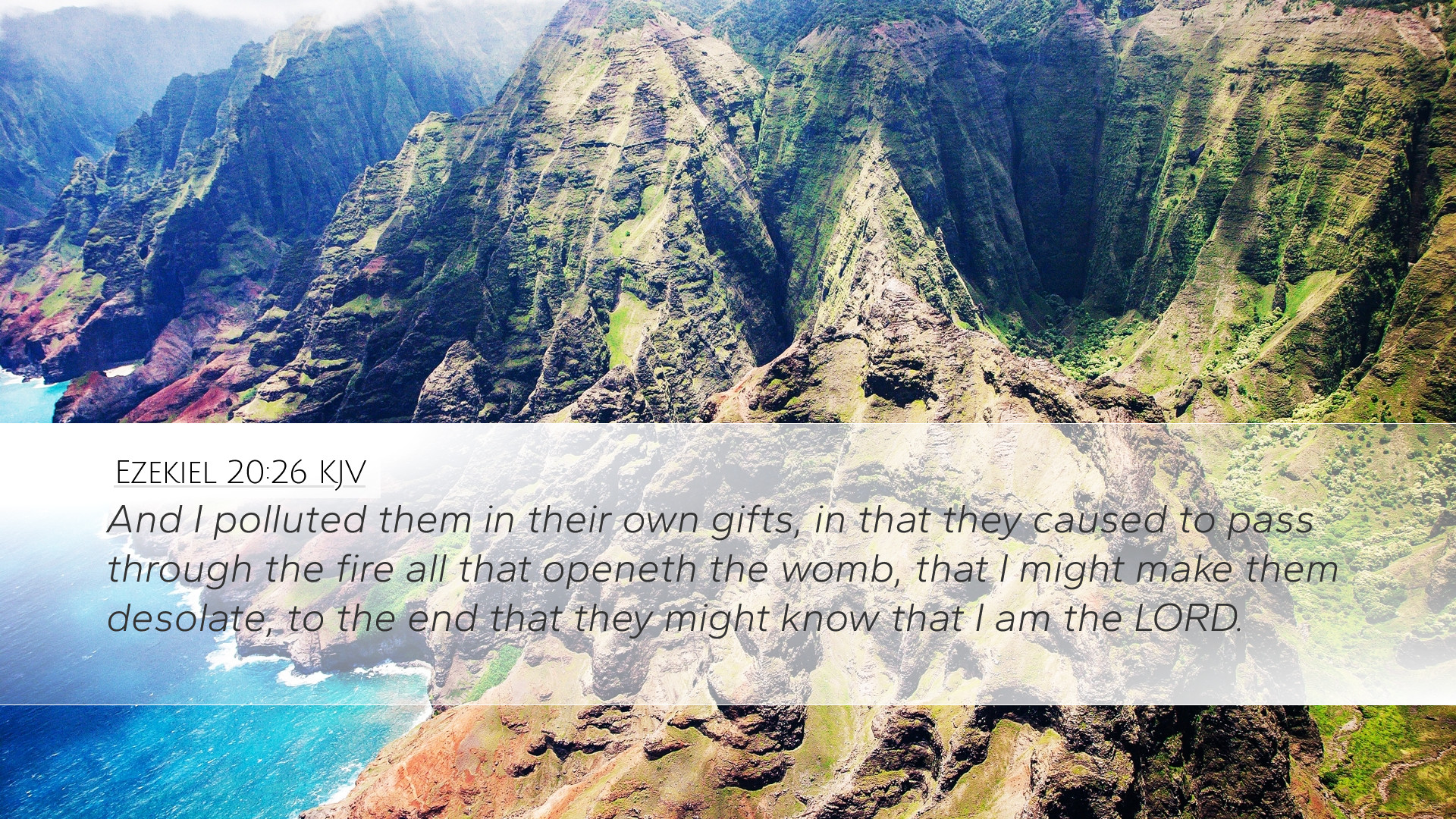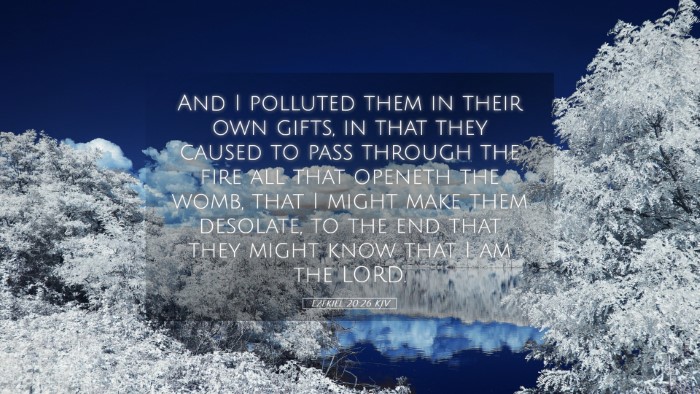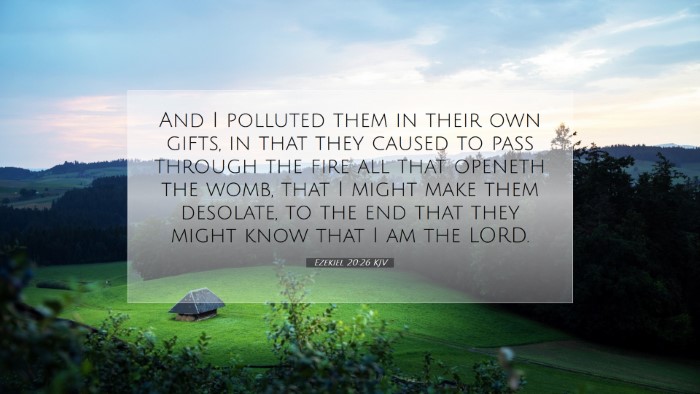Ezekiel 20:26 Commentary
Verse Context:
Ezekiel 20:26 states, "And I polluted them in their own gifts, in that they caused to pass through the fire all that openeth the womb, that I might make them desolate, to the end that they might know that I am the LORD."
Overview and Themes
This verse reflects the judgment of God upon His people, particularly emphasizing the consequences of their idolatry and rebellion against Him. God remarks on how the Israelites have offered their children to idols, leading to their spiritual desolation. This speaks to the broader themes of divine justice, the seriousness of sin, and God’s unwavering commitment to His holiness. The phrase "that I might make them desolate" indicates that desolation is both a consequence of sin and an avenue for understanding God's sovereignty.
Insights from Matthew Henry
Matthew Henry emphasizes the gravity of Israel's sin in the context of their worship practices. He highlights that the phrase "polluted them in their own gifts" suggests that instead of their sacrifices bringing them closer to God, they were actually conduits for divine judgment. The notion of passing children through fire was an abominable act, reminiscent of the worship of Molech, illustrating the depths of their depravity.
Henry illustrates God's purpose behind this judgment: it serves to awaken the people to their errors and drive them to acknowledge that "I am the LORD." He sees this as a call to repentance, where desolation becomes a means of turning back to God.
Insights from Albert Barnes
Albert Barnes provides a historical backdrop to this verse, explaining that the Israelites engaged in idolatrous practices which included the sacrifice of their children. He describes this as a direct violation of the commands God had given them, leading to divine disfavor.
Barnes analyzes the phrase "that I might make them desolate", suggesting that God's judgments are not merely punitive but are intended as a corrective measure. He argues that God aimed to bring His people to a clearer understanding of their covenant relationship with Him. This idea reflects the broader theology of the Old Testament, where disruption often leads to renewal and a return to faithfulness.
Insights from Adam Clarke
Adam Clarke takes a pastoral approach, focusing on the emotional implications of this verse. He observes that the act of sacrificing children invokes profound grief and sorrow. Clarke warns of the dangers of allowing cultural practices to overshadow divine commandments, noting that the Israelites were ensnared by the allure of surrounding nations.
Moreover, Clarke notes that being "polluted in their own gifts" symbolizes how they had made their religious practices an affront to God rather than an offering of worship. He stresses that the chastening hand of God serves as a reminder of His holiness and the need for humanity to remain devoted to Him, illuminating the path for those who are spiritually desolate to seek restoration.
Theological Implications
This passage raises significant theological questions about the nature of God's holiness and justice. The judgments expressed in Ezekiel 20:26 underscore the severity with which God addresses sin. Pastors and theologians can draw from this verse in understanding the transformative power of divine judgment, whereby desolation can lead to recognition of God's authority.
Applications for Modern Believers
For students and scholars, Ezekiel 20:26 can serve as a profound warning against complacency in spiritual matters. There is a clear sense of urgency in turning back to God, recognizing the weight of one's spiritual responsibilities and the gravity of sin. Pastors can use this verse to emphasize the importance of fidelity to God's commands in modern worship contexts.
Moreover, the call to recognize God's sovereignty ("that I am the LORD") serves as an enduring reminder of His authority over all aspects of life. This recognition can lead to transformative experiences in the life of believers who may feel spiritually desolate.
Conclusion
Ezekiel 20:26 captures the tension between God's justice and mercy, illustrating the consequences of turning away from Him. Through insights from Matthew Henry, Albert Barnes, and Adam Clarke, we can see that this verse is not only a historical account of Israel’s failures but also a timeless counsel for the church today. It calls for introspection, urging modern believers to examine the gifts they offer to God and to ensure that they remain untainted by worldly influences.


